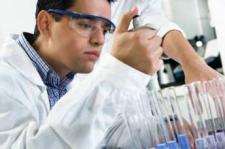How should we pay for gene therapy?
By Aaron Carroll (The Incidental Economist),
Academy Health Blog
| 05. 27. 2016
For many, many years we’ve been hearing about gene therapy – the chance that we can get into people’s DNA and fix it to resolve problems and fix disease. In a recent piece in Science, Stuart Orkin and Philip Reilly discuss what finally achieving success might mean:
Imagine a young man with hemophilia A who no longer has to self-administer factor VIII replacement; an individual with sickle cell disease who is free of chronic pain and intermittent crises; a girl functionally blind since the age of 5 who can now see; or a baby rescued from a fatal, inherited neurodegenerative disease. For decades, gene therapy has tantalized us with such futuristic scenarios. However, these goals are now coming into focus, and it is the time to consider some of the consequences of success.
As they report, gene therapy has been forty-four years in the making. But gene therapy, which has cost billions of dollars in research and development, is different from the traditional pharmaceutical market. For one thing, most diseases which are the focus of gene therapy research are relatively...
Related Articles
By Arthur Lazarus, MedPage Today | 01.23.2026
A growing body of contemporary research and reporting exposes how old ideas can find new life when repurposed within modern systems of medicine, technology, and public policy. Over the last decade, several trends have converged:
- The rise of polygenic scoring...
By Stephanie Pappas, LiveScience | 01.15.2026
Genetic variants believed to cause blindness in nearly everyone who carries them actually lead to vision loss less than 30% of the time, new research finds.
The study challenges the concept of Mendelian diseases, or diseases and disorders attributed to...
By David Cox, Wired | 01.05.2026
As he addressed an audience of virologists from China, Australia, and Singapore at October’s Pandemic Research Alliance Symposium, Wei Zhao introduced an eye-catching idea.
The gene-editing technology Crispr is best known for delivering groundbreaking new therapies for rare diseases, tweaking...
By Josie Ensor, The Times | 12.09.2025
A fertility start-up that promises to screen embryos to give would-be parents their “best baby” has come under fire for a “misuse of science”.
Nucleus Genomics describes its mission as “IVF for genetic optimisation”, offering advanced embryo testing that allows...




